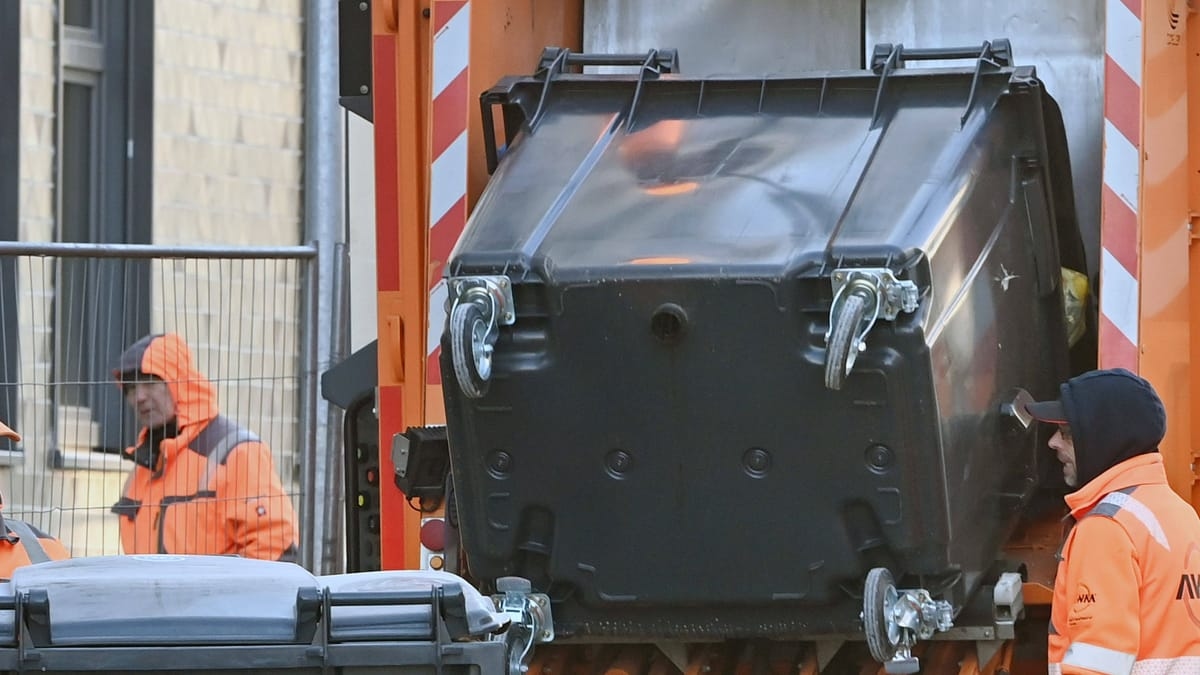Hanover Region: Waste disposal fees will increase by around ten percent from 2026

November 3, 2025 - 1:50 AM Reading time: 2 min.
After two years of fee reductions, the Hanover region is tightening the screws on prices: Garbage collection costs are set to rise dramatically. Here's the reason behind it.
Garbage collection for households in the Hanover region is set to become noticeably more expensive starting next year. This was announced in a press release from the state capital. A family of three will pay €15.38 per month for their residual waste bin. That's €1.32 more than before. The Hanover Region Waste Management Association (aha) plans to increase its revenue for 2026 and 2027 by €26 million to approximately €203 million. This represents an increase of 9.45 percent.
The relevant waste management committee has already approved the fee increase. The final decision rests with the regional assembly and the association assembly. If both bodies approve, the new regulations will come into effect at the turn of the year.
The special-purpose association attributes the increase to several cost factors. Compared to 2024, fuel prices have risen by 50 percent, resulting in additional costs of €3.1 million. The incineration of residual waste is €5.1 million more expensive due to increased treatment costs and the CO₂ tax. Higher personnel costs account for €4.7 million, due to negotiated wage increases and more employees. Depreciation on vehicles, construction projects, and technical equipment amounts to another €3.1 million. Added to this are expenses for landfill aftercare, replacement containers, workshop equipment, and digitalization.
After two years of reduced fees, a complete reversal has now taken place. For 2024 and 2025, aha had reduced fees by 3.3 percent – despite inflation.
While residual waste fees are rising, the costs for organic waste remain almost constant. A single-family home with three residents will continue to pay €4.53 per month for the 80-liter organic waste bin. Together with residual waste, this will amount to €19.91 per month in the future.
In apartment buildings, the increase is more significant. For a building with four families and a shared 660-liter residual waste container, the monthly fee per household rises by €1.87 to €21.69. Although only a minimal increase, the organic waste bin will also become more expensive: instead of €40.26, each family will now pay €40.30.
Officials argue that the fee increase remains moderate. Consumer prices in Lower Saxony have risen by 19.2 percent since 2020, averaging 4.85 percent per year. In contrast, waste disposal fees have developed more moderately: after a 3.5 percent increase in 2023, they were reduced for two years. Over the period from 2023 to 2027, this results in an average annual increase of approximately three percent.
Julia Fürst, managing director of the Zweckverband (special-purpose association), explains that the adjustment is necessary to ensure waste disposal. She emphasizes that they are taking care to keep costs for residents as moderate as possible. Jens Palandt, First Regional Councillor and Chairman of the Association Assembly, describes the increase as moderate in light of inflation. He maintains that the services provided remain very well valued.
For households, the message is clear: after the respite, prices are rising again. And this comes at a time when many are already struggling with increasing energy and living costs.
t-online


